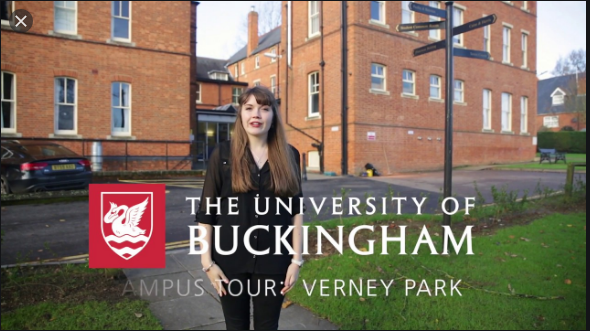Master of Medicine (MMed)
The Master of Medicine (MMed) is a comprehensive 2-year medical training programme providing structured postgraduate training in General Medicine leading to the award of a Master of Medicine from the University of Buckingham.
It is designed to deliver core training for speciality training by the acquisition of knowledge and skills as assessed by the workplace based assessments and the MRCP. The programme is broad-based consisting of four to six placements in medical specialities. These placements must include direct involvement in the acute medical take.
The key features of the MMed are:
- Student-led – we will use an ePortfolio to encourage a learner-centred approach with the support of Educational Supervisors. The ePortfolio contains tools to identify educational needs, enables the setting of learning goals, reflective learning and personal development.
- Competency-based – the curricula outline competencies that trainees must reach by the end of the programme. The curriculum is directly linked to the ePortfolio as it defines standards required for good medical practice and formal assessments including the MRCP exams.
- Continuation of Good Medical Practice – building on existing training the curriculum contains important emphasis on generic competencies necessary for practice as a physician.
- Supervision – each student has a series of people with clearly defined roles and responsibilities overseeing their training including Clinical Supervisor, Educational Supervisor, University Tutor, Pathways to Postgraduate Training in Medicine Director, and Dean of Postgraduate Medicine.
- Appraisal meetings with supervisor – regular appraisal meetings and review of competence progression are set out in the ePortfolio.
- Dissertation – Literature review 10,000 words.
- Workplace-based assessments – regular workplace-based assessments are conducted throughout training. These include the Acute Care Assessment Tool (ACAT), Case-Based Discussion (CbD), mini-Clinical Evaluation Exercise (mini-CEX) and multisource feedback (MSF) with additional assessment methods to assess Audit (AA).
- MRCP examination – the various parts of our curriculum have been mapped to the MRCP (UK) curriculum and this provides a knowledge base assessment.
The current training hospitals are Milton Keynes University Hospital, Blackpool Teaching Hospitals and University Hospital of North Durham.
Campus Information
Buckingham
Intakes
- April
Application Processing Time in Days: 15
Minimum English Language Requirements
| English Level Description | IELTS (1.0 -9.0) | TOEFL IBT (0-120) | TOEFL CBT (0-300) | PTE (10-90) | |
|---|---|---|---|---|---|
| Expert | 9 | 120 | 297-300 | 86-90 | |
| Very Good | 8.5 | 115-119 | 280-293 | 83-86 | |
| Very Good | 8 | 110-114 | 270-280 | 79-83 | |
| Good | 7.5 | 102-109 | 253-267 | 73-79 | |
| Good | 7 | 94-101 | 240-253 | 65-73 | |
| Competent | 6.5 | 79-93 | 213-233 | 58-65 | |
| Competent | 6 | 60-78 | 170-210 | 50-58 | |
| Modest | 5.5 | 46-59 | 133-210 | 43-50 | |
| Modest | 5 | 35-45 | 107-133 | 36-43 | |
| Limited | 4 | 32-34 | 97-103 | 30-36 | |
| Extremely Limited | < 4 | < 31 | < 93 | < 30 |
Job Opportunity Potential
Attainment of MMed and MRCP will allow the student to consider higher medical training.
PSW Opportunity
2 years of PSW available after completion of Degree program
Admission Requirement / Eligibility Criteria
Candidates need to have a primary medical degree and will need to obtain full registration with the General Medical Council ahead of starting the course. Additionally, they should also have the following:
- Successfully completed one year of internship at a hospital and must supply their Certificate of Completion.
- An IELTS score of 7.5, with a minimum of 7.0 in each section or an OET with an average of 440-350 overall and a minimum of 350 in each component.
- Graduated from an internationally recognised medical school.
- Completed their undergraduate training and be fully registered with the Medical Council in their respective countries.
- Two character reference letters from any member of their medical school academic staff, OR from their current senior medical colleagues and consultants.
There are various options for entry onto the course, depending on the applicant’s qualifications.
Postgraduate entry requirements
In order to study at postgraduate level (Master’s degree), you will normally need to have attained:
- A Bachelor’s degree from a recognised higher education institution, with Second Class/Division (50-64%) equivalent to a British Bachelor’s (Honours) degree, with a minimum of a 2:2, depending on school of study.
For More Information Please Connect Our PSA Counselor
- Course Type: Full Time
- Course Level: Masters/PG Degree
- Duration: 02 Year
-
Total Tuition Fee:
33000 GBP
Annual Cost of Living: 9207 GBP
Application Fee: N/A
Similar Programs
- MA Leadership in Sport at University of Buckingham
- MSc (Research) in the Psychology of Creativity and Performance Expertise at University of Buckingham
- MSc Health Psychology at University of Buckingham
- MSc Psychology by Research at University of Buckingham
- MSc (Research) in Cyberpsychology at University of Buckingham
- MA Philosophy by Research at University of Buckingham

